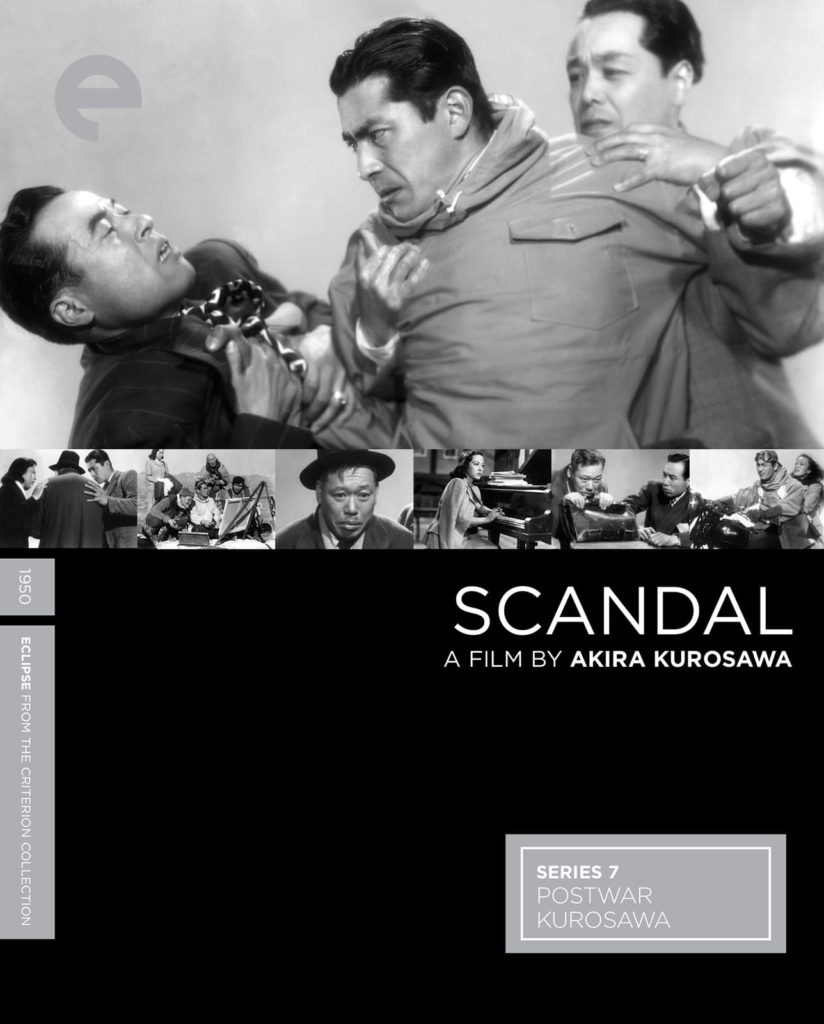To celebrate the upcoming release of my book, Akira Kurosawa: A Viewer’s Guide, due out Dec. 15 from Rowman & Littlefield — preorder here! — I’ll be doing capsule reviews all month covering every single Kurosawa film and posting (very) brief excerpts. These will be short impressions and recommendations, nothing more. For a full, detailed analysis of each, grab the book!
Scandal (1950)
In the years immediately following the end of World War II, Akira Kurosawa found himself increasingly frustrated with the sometimes salacious turn Japan’s newly free media had taken, with too many tabloids dishing out celebrity gossip and rumors. With Scandal, he decided to confront that issue head-on.
Well, until Takashi Shimura’s character began to steal the spotlight, that is.
Here, an artist portrayed by Toshirō Mifune is photographed with popular singer Miyako Saijo (Shirley Yamaguchi). Tabloids falsely report that the pair are having an affair. Furious at the articles, Mifune hires Takashi Shimura, a down-on-his-luck lawyer struggling to make enough money to cure his tuberculosis-stricken daughter, to represent him in a lawsuit.
What begins as an examination of media responsibility instead turns to a story about corruption. It’s all capably acted, including some fantastic work by Shimura, and it’s always interesting seeing the young, slim, handsome Mifune rather than the gruff tough guy of later films, but this movie has some issues that make it tough to recommend to casual fans. From the book:
The mission statement laid out in the movie’s opening reel is abandoned. It instead becomes about the redemption of a hapless attorney we don’t meet until the ostensible conflict of the movie has already been introduced. This unintentional misdirection on Kurosawa’s part results in a story without real focus and with themes that vie so hard for dominance over one another, neither ends up explored satisfactorily.
For Kurosawa aficionados and scholars, Scandal helps flesh out the big picture of the director’s interest in examining postwar Japan, but most other viewers will likely see this as lower tier Kurosawa.
Check out my upcoming book for a full analysis exploring this film’s ideas, themes, good points, and bad
You can get the movie in this excellent boxed set.







